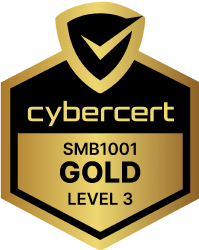There are so many businesses choosing to use the internet of things to improve their workflow, reduce their costs and increase their efficiency.
But what actually is the internet of things? And how is the IoT being used by businesses to modernise and streamline their operations?
What is the Internet of Things?
The internet of things, also known as the IoT, is a term used to describe a web of connectivity between ‘smart’ devices. The IoT encapsulates a wide variety of devices, from smart fridges to entire manufacturing plants.
The internet of things uses an internet connection to allow data to be transferred between devices. This data can be used to maintain, measure, control or report on these devices.

As you can see, the internet of things requires a data connection between the machine and the IoT platform. This internet connection is often delivered by IoT SIM cards. These IoT SIM cards use a fixed IP address to connect between your IoT platform and the device.
Examples of the IoT
There are so many examples of the internet of things, that it would be impossible to list them all here. But here’s a few of the most common applications of the IoT.
Machinery using the IoT
Many manufacturing businesses use the IoT to connect their machinery to a centralised communications and control centre. Using the internet of things is a great way to monitor and control these machines in real time, from one location.
It also allows workflow managers to gather vital information and data which they can use to further streamline their operations and create a more cost effective environment.
IoT in Cars
One of the most common uses of the internet of things is in the automotive industry. Many modern cars use the IoT to connect to smartphone apps or internet navigation.
Car manufactures such as Tesla, Mercedes, BMW and Land Rover implement IoT SIMs into their cars to enable features such as remote unlocking and climate control. IoT connective is also being used in to enable driverless cars and autopilots.
Utilities management using the IoT
Whether it's water, gas, electricity, fuel or anything else, keeping a close eye on your utilities is important. Using the internet of things, businesses can reduce their running costs and increase their safety by remotely monitoring and controlling their utilities.
A great example of utilities management using the IoT is Prolectric. Prolectric provide solar powered LED lighting towers across the UK. They use our fixed IP IoT SIMs to relay vital information to and from their remote lighting towers. This helps then reduce running costs by removing the need for an engineer to gather the information on site.
Using the internet of things also allows Prolectric to provide a great service to their clients, being able to spot, debug and solve issues remotely from their IoT connected control centre.
Internet of things in Construction
The construction industry always makes use of modern technologies when it can—and the IoT is no exception. Many construction sites are using the IoT to control their supply chains, and workflow.
Some construction companies are even using the internet of things to help reduce the risk on site and replacing drivers and machine operators with remote controlled heavy machinery.
The internet of things has truly revolutionised the way businesses use connectivity. Being able to remotely maintain and control devices has vastly improved safety and allowed businesses to create more cohesive, streamlined workflow.
If you’re looking for internet of things connectivity, get in touch with a member of our team today.






